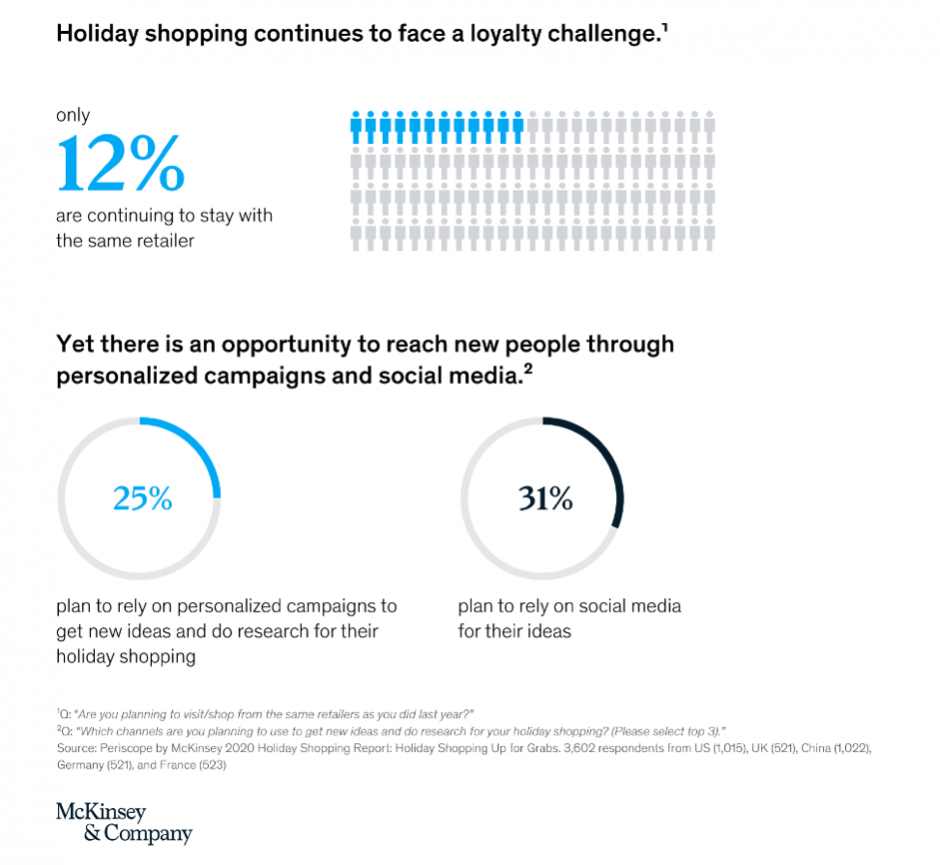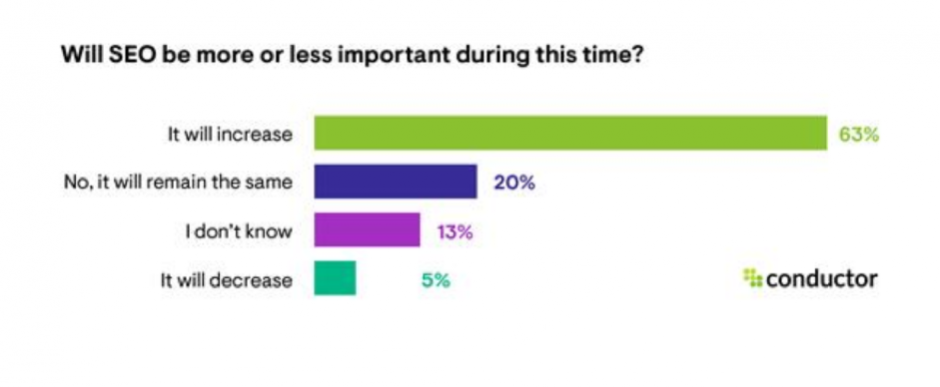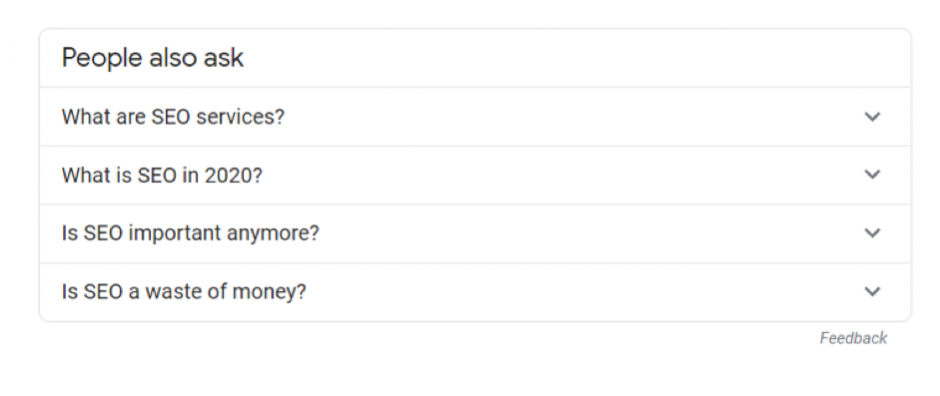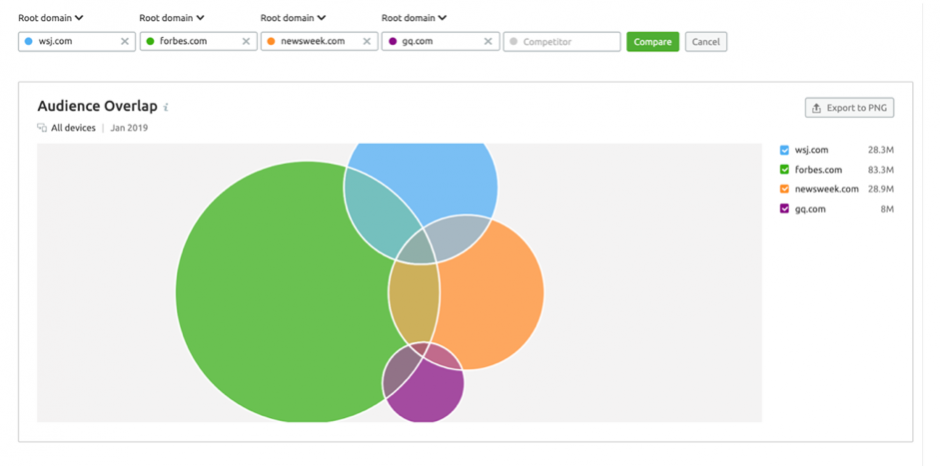3 SEO priorities for the next 6 months
With a difficult 2020 coming to an end, we could all do with a dose of optimism for the next year ahead and luckily there is plenty of data to suggest business recovery will pick up by Q2 2021. Which means brands need to react now to ensure their search is strong enough to fully capitalise on demand, as it returns to normal.

Vertical Leap scope out some of the biggest SEO trends for the coming months.
Here, we look at three SEO priorities you need to place at the centre of your search marketing strategy for the next six months.
1. Diversify your marketing around SEO
In response to the coronavirus pandemic, half of UK companies slashed their advertising spend while only 7% said they would increase spending to take advantage of decreased competition and exploit new opportunities.
With 2020 now coming to a close, these opportunities are becoming more apparent. Some 37% of consumers plan to spend more online this year while only 12% say they’ll continue to buy from the same brands, according to a report from McKinsey.

So people in the UK aren’t only buying on new platforms since the pandemic began; they’re also buying from new brands, which means there are a lot of opportunities to be won and lost.
Brands that pulled back on their advertising spend as a result of Covid-19 lost key channels like Google Ads for capturing these buyers. However, 63% of marketers said SEO will become more important during the coronavirus pandemic, highlighting the importance of a strong organic search presence during times of uncertainty.

The key takeaway from this is that, if you’re going to pull back on advertising spend, you need the organic search presence to fall back on. One of the biggest strengths of SEO is that its momentum carries on, even if you reduce spend, while your ads stop generating leads as soon as your spend stops.
SEO is the saviour during times of crisis but diversifying with a comprehensive multi-platform presence puts you in the best position to react to disruptions.
Let’s go back to our earlier stat that 37% of British consumers plan to spend more online this year. This coincides with Amazon sales being up by 37% YoY in Q3 2020 and eBay reporting a 25% increase YoY for the same period. Retailers managing a multi-channel strategy of organic SEO and paid advertising on Google Shopping, Amazon Ads and eBay Ads are in a good position heading into 2021.
2. Get out of your search marketing bubble
Tools like Google Search Console and Google Analytics are staple platforms for search marketers. With Search Console, you can see which queries your website shows for in the SERPs, even when users don’t click through to your site - a powerful tool for optimising your strategy to maximise existing opportunities.
That said, if you rely too heavily on a platform like Search Console, you can lock yourself into an echo chamber where you’re only ever optimising for the existing opportunities Google reveals for you.
What about the opportunities you’re not showing for that Search Console isn’t reporting, though?
Luckily, Google does provide all of the data you need to find these opportunities, as long as you know where to find them. For example, if you type “SEO services” into Google Search, there are two places that reveal related search opportunities on the results page:
The People also ask section
The Searches related to section
Google recommends these searches because they’re relevant to your initial query and they generate high search volumes. In other words, these are keyword opportunities you definitely want to be showing for and you can check whether you are or not by going back to Search Console and checking which queries your website shows for.

Of course, manually running these checks is going to take a lot of time but you can automate this entire process with intelligent automation to ensure you’re always optimising for the best opportunities.
3. Understand your share of search
There’s a lot of talk about “share of search” in the marketing world right now and this is even more important, considering all of the shifts that have taken place in 2020. Your share of search helps you identify the size of your existing search presence in relation to the total volume of opportunities available to you.

One way to check this is by using the Audience Overlap tool in SEMrush. All you need to do is type in your website URL and a list of competitors you want to measure against. In the graphic above, you can see Forbes has the largest share with 83.3 million search terms, WSJ and News Week with 28 million each and GQ with 8 million.
Now, the overlap of those bubbles illustrates where these publications are showing for the same queries. More importantly, the areas where there is no overlap shows where each brand is capitalising unique opportunities, and this is where Forbes has built the vast majority of its search presence.
If you find yourself competing against a giant like Forbes, the good news is that this kind of report can reveal how much of your market potential you’re not yet realising. Which brings us back to getting out of your search bubble and finding the opportunities your current datasets aren’t revealing.



 Print the article
Print the article


